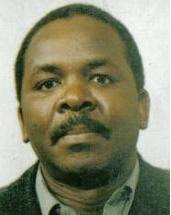Here are some lines of poetry dedicated to the upcoming anniversary of the bungled Kenyan Presidential Election of 2007, specifically mourning those who lost their lives in the tragic events that would follow. The country is moving ahead with reforms, thanks to a few brave men and women who heeded Dr. Kofi Annan's call for peace and reconciliation at the negotiation table, and the efforts of two men, Kriegler and Waki whose commissions gave us report recommendations on the way forward. Prime Minister Odinga and President Kibaki must be commended for their courage to stand against partisan interests, and stake out their personal honor for peace and Kenya.
But Kenya is for Kenyans not a few individuals. A new constitutional arrangement that serves all Kenyans, big and small, rich and poor, man or woman, able-bodied or physically challenged, will only be a reality if all Kenyans insist on it--not as tribes but as Kenyans. Parliament has set the process in motion, and what document comes out of it must be seen to be Kenyan and by Kenyans.
Fellow Kenyan
I am Kenyan,
My mother is a Kikuyu
And my father is a Luo
My great-grandfathers
Were Kamba and Maasai;
Now you are telling me
To leave Narok, Kisumu,
Nyandarua, Kakamega and Nakuru
And go back
To my ancestral land:
To which ancestral land
Should I return?
Fellow Kenyan,
We always shared
in our poverty and misery;
Why then have we turned
One against another?
Fellow Kenyan,
Will this destructive war
Help us extricate ourselves
Out of the quagmire
Of filth and poverty in which
We have found ourselves?
Fellow Kenyan,
This wasteful war
Won’t quench your child’s hunger
Neither will it provide
Any decent shelter
To my child;
Fellow Kenyan,
This wasteful war
Won’t put food on your table
And neither will it
pay my house rent;
Fellow Kenyan,
This wasteful war
Won’t pay your bus-fare,
Neither will it buy
My child’s malaria medication.
Fellow Kenyan,
Yes, the tribe
Is part of our DNA,
But Dear Kenya—
As imperfect a vessel as it is–
Is part of our existence;
And So, Fellow Kenyan,
We must refuse
To be tagged with such divisive,
And self-serving labels as
A Luyia lawyer,
or a JaLuo Judge;
A Kikuyu cook,
An Ishimus in-keeper,
A Maasai mathematician,
A Mjikenda magician
or a Gusii gunsmith;
A Kuria cleric,
An Oriek orator,
A Borana banker,
A Somali swordsmith,
or a Teso tax-collector;
Because when hunger
Struck during the last drought
Kikuyu, Luyia, and JaLuo
in Nairobi; We all starved;
And pangs of hunger
And incidents of malnutrition
Did not discriminate
On the basis of tribe;
And if the tables
were full in Woodley,
Runda and Muthaiga;
And empty in Mathare,
Korogocho and Kibera;
It wasn’t because
Of anybody’s DNA.
So, Fellow Kenyan
Why tag me with a label
Which cannot put food
On the table
For my starving daughter?
Why tag me with a label
Which can not buy
Badly needed medication
For my sick child?
Why tag me with a label
Which only has value
To a geneticist?
Fellow Kenyan,
What happened to the Kenya
We used to know
That now you laugh
Through my tribulations,
And can’t suffer my pain
Because I am a Turgen
And you are a JaLuo?
From RATENG' AND BRIDE (A POEM)By Joseph R. Alila https://www.createspace.com/3346481
ISBN/EAN13:
1438251092 / 9781438251097



